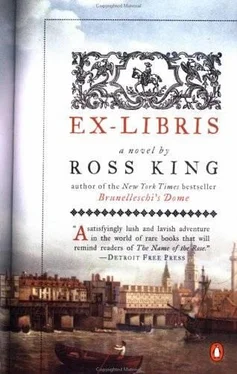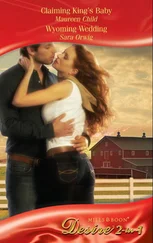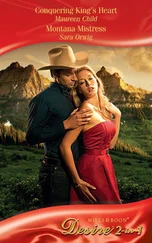Such, then, was the legend that had been favoured by Mr. Molitor: mathematicians and cartographers in Seville, in the service of Philip II, had, round about the year 1600, perfected a new method of map projection, one that preserved Mercator's grid while doing away with its distortions, so that navigation became easier in the higher latitudes. New and shorter routes to Cathay and India might thereby be discovered, along with the famous lost continent, Terra australis incognita , which was thought to lie somewhere in the South Seas, in the high latitudes south of the equator.
'And Ortelius?' I was studying the upside-down atlas, hoping to guide him back to the matter at hand. 'He would have known about this new projection?'
Mr. Barnacle nodded vigorously. 'Of course he would have known about it. He was the Royal Cosmographer, after all. He may even have helped devise it. But when Philip died in 1598, Ortelius left Spain for Bohemia. Possibly he hoped to pass the secrets of the new method, for a price, to the Emperor Rudolf, or even to someone else. Prague was filled with fanatical Protestants in those days, enemies of Spain and the Habsburgs. And so perhaps he was murdered by Spanish agents as his reward.' He shrugged and clapped the volume shut. 'The rumour is compelling but impossible to verify as the plates have since disappeared. Some say they were stolen, but that cannot be verified either.' He smiled, thinly and helplessly, then shrugged again. 'Nor do any of the books themselves survive. The few copies ever printed are all thought to have been either lost or destroyed when Prague was pillaged during the Thirty Years War.'
No, I thought, shuffling through his doorway a few minutes later and back into the heat, thinking of the water-damaged volume in the queer little laboratory: not quite all of the copies had vanished. But as I wandered aimlessly back towards Charing Cross I wondered if I had not wasted my time after all. For what connections could exist between Ortelius's Theatrum and the Hermetic text I had been hired to locate? Between a new map of the world and a manuscript of ancient wisdom? But then I recalled what Mr. Barnacle had said about the age of discovery and wondered if I had stumbled upon a connection, however remote, with Sir Ambrose's expedition to Guiana, if in fact the voyage ever took place.
I thrust the thought from my head. I decided that my imagination, like my feet, had taken me too far afield. It was time to return home.
***
It must have been after six o'clock when I hailed a hackney coach outside the Postman's Horn (in whose tiny garden I had consoled myself with another pint of ale under a mulberry tree) and began making my way back towards London Bridge through the knots and streams of evening traffic. I fell asleep after a few minutes but was roused, somewhere along Fleet Street, by the sound of shouting. The traffic must have been even thicker now, because for minutes on end the hack barely moved. I dozed again but found myself awakened once more, this time by the abrupt, two-toned bleat of a horn. I sat upright and drew back the curtain, expecting to see the Fleet Bridge with Ludgate beyond it. Only we were no longer in Fleet Street.
I thrust my head outside the window and peered up and down the street. We must have taken a wrong turn. I didn't recognise any of the taverns and alehouses overhanging the street, or even the street itself, a narrow, deserted channel darkened by billows of black smoke.
'Driver!' I rapped on the roof of the coach. Had the idiot lost his bearings?
'Sir?'
'Where the devil are you taking us, man?'
He had swivelled round in his seat, a big bear of a fellow with a thick neck and sun-peeled nose. He was grinning uneasily through a set of wooden dentures.
'An accident in Fleet Street. Cart-horse dropped down dead, sir. So I thought that if you pleased-'
I interrupted him. 'Where are we?'
'Whitefriars, sir,' he replied, teeth clicking. 'Alsatia. I thought I'd come back up to the Fleet Bridge from Water Lane, sir, and then-'
'Alsatia-?'
The narrow passage had now assumed a more sinister aspect. I knew of Alsatia's unsavoury reputation. It was a dangerous hinterland beside the noxious sludge of the Fleet River: a dozen-odd streets and God only knew how many back courts and alleyways, all claiming exemption from the jurisdiction of the City's magistrates and justices by right of a charter granted earlier in the century by King James. The result of these privileges was that the quarter now gave sanctuary to criminals and villains of every description. Bailiffs and catchpoles entered at their peril, as did anyone else foolish enough to wander south of Fleet Street. The horn that awakened me must have been, I supposed, a signal from one of their look-outs, a warning to the others that strangers had arrived in their midst. Although the quarter now seemed innocent enough in its faint gilding of antique-gold sunlight, I was taking no chances.
'Take us out of here immediately,' I commanded the driver.
'Yes, sir.'
The hack shunted forward, negotiated a dog's-leg, rounded a bend, then crept through a tight street bordered on either side by decrepit buildings whose window-panes were filmed with grease and soot. The road was cratered with pot-holes, a few of which had been imperfectly repaired with brushwood. No one seemed to be about. The Thames lay to our right, parallaxing into view every now and then across vacant, rubble-littered lots, its front lined by a number of precarious-looking wharves. Black ghosts of coal dust hurried across our path. We kept a course parallel to the river, the hack swaying from side to side as the wooden-toothed Jehu on the box-seat picked our way recklessly round an obstacle course of desquamated roof-tiles, shattered bits of quern-stone and the iron hoops and broken staves of long-emptied kegs of ale. Soon I could smell the mud of the Fleet; then a minute later its bank cut us off, and we turned on to a path that did not, to my eyes, look like leading back up to Fleet Street.
'For God's sake, man!'
'Another minute, sir…'
But after another minute we were still bumping and swaying on the path, downwind of the constipated river, our wheels squelching in the mud. The Fleet's surface was scummed over and clouds of insects hung in the air. I covered my nose with a handkerchief and held my breath.
All at once, however, I caught sight through the window of something that looked familiar, a bit of graffito-the work of a child?-scrawled in chalk across a dead wall, thus:
I craned my neck as we lumbered slowly past. What did this peculiar hieroglyph mean? Was it the caricature of a man? A horned man? Perhaps the devil? I was certain I had seen the figure somewhere before. But where? In a book?
'Damn!'
I swung round and peered up at the box-seat. 'What is it?'
'Apologies, sir.' The hack had stopped moving. 'We seem to have reached a dead end.'
'A dead end-?'
The graffito was forgotten. I flung open the door, stepped outside and immediately sank halfway to my ankles in some sort of ooze. The horses, too, stood fetlock-deep in sludge and the wheels of the hack were buried to their rims. I raised my eyes. I could see ahead of us the bell-tower of Bridewell Prison and the steeple of St. Bride's, but little else other than a cluster of sheds in the gathering shadows. It was later than I had realised, for the sun was dipping behind the irregular serrulations of Whitehall Palace, and here and there among the buildings a few rush-lights had begun to flicker. Alsatia was coming awake.
'Allow me, sir.'
The driver tossed his whip aside and hopped down from his box, giving me an ingratiating smile. He had almost guided me back inside, when I looked up from the mire to see that a light had appeared in the window of the building nearest us: a tavern, from the look of it. Its signboard creaked faintly in the breeze. I squinted at its inscription. I could make out the head of some sort of animal and a wink of gold paint.
Читать дальше












